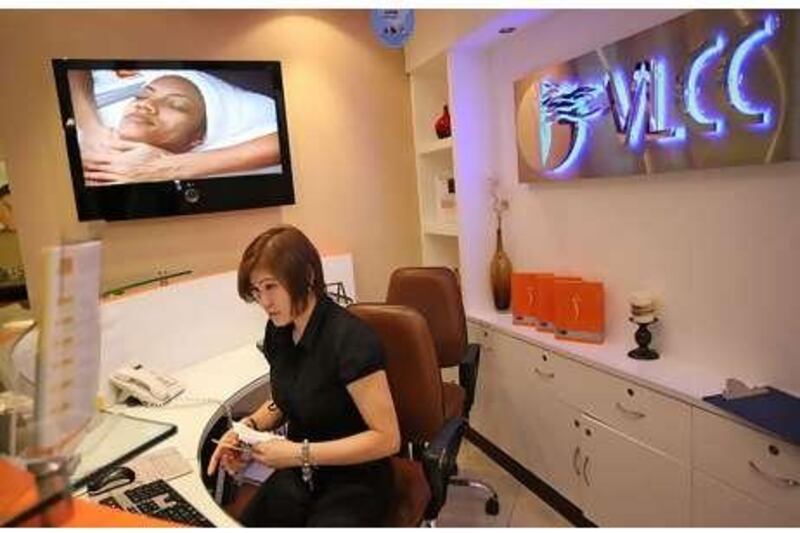One of India's biggest health and beauty companies is making a big push into the Middle East with plans to invest as much as US$350 million (Dh1.28 billion) by 2014. VLCC Health Care plans to double the number of its weight-loss and spa centres to 24 in the Middle East within 12 months, according to Mukesh Luthra, the chairman.
The company also plans to spend Dh60m to build a 35,000 square metre warehouse and plant to manufacture personal care products, such as shampoos, in either Dubai, Bahrain or Qatar. With the high levels of obesity in the MENA region generally, the area is the first focus of the company's global expansion, Mr Luthra said. "We believe there is a huge opportunity sitting here," he said yesterday during a visit to Dubai. "We will actually focus on the Middle East first, then move further out."
By 2014, VLCC plans to have 65 centres across the region, he added. As health-related disorders such as diabetes become more prevalent in the UAE and the surrounding region, more consumers are looking for healthier lifestyle services and products. In the UAE, one in five people has diabetes, the second-highest rate in the world, the UN World Health Organisation said. One in eight children in the Emirates is classed as obese, also one of the highest rates in the world, according to the UN.
In turn, Gulf retailers have been introducing new products and services to tap into this growing segment. IFFCO, one of the largest food makers in the region, is introducing new organic products, while Al Ghurair Foods has also launched a high-fibre, low-calorie flour for those with diabetes. Analysts say this market will continue to increase as consumers pay more attention to nutrition and health.
Spas are also gaining popularity in the UAE. Between 2004 and last year, the number of spas at hotels and resorts in the UAE rose from 98 to 156, data from Euromonitor showed. The Emirates' health and wellness market was worth Dh3.6bn last year and is expected to reach Dh4.5bn by 2014, the research company forecasts. However, the sector has not been recession proof. Sales growth last year was just 6 per cent compared with 15 per cent in 2008, according to Euromonitor data.
Mr Luthra said his company's sales growth in the Middle East during the past fiscal year slowed from between 35 and 40 per cent in 2008 to about 15 per cent last year. In the UAE it was 10 per cent but Bahrain and Oman's growth helped to compensate, he said. However, VLCC's sales in its main market of India, where it has almost 300 centres, grew by 30 per cent, he added. VLCC's global sales during its last fiscal year, from April last year to March, was about $500m.
But in the three months from April there are signs of improvement, with regional sales growth of between 18 and 20 per cent, Mr Luthra added. The company has stores in the UAE, Bahrain and Oman but plans to enter Qatar, Kuwait and Saudi Arabia before the end of April next year, he said. It is also opening a new outlet in the Dubai Marina within the next week. VLCC has already bought land in the Jebel Ali Free Zone on which it could build the manufacturing facility. It would produce between $300m and $400m worth of products annually but the company is also examining options in Bahrain and Qatar, he said. This facility would make personal care products under VLCC brands that would be distributed across the region and to some of the other 45 countries it already exports its products to, he said.
"To save the cost of transportation all the way to India and also to export to the US and the UK, which is a big market for us, we would like to go in for the plant as quickly as possible." @Email:aligaya@thenational.ae





